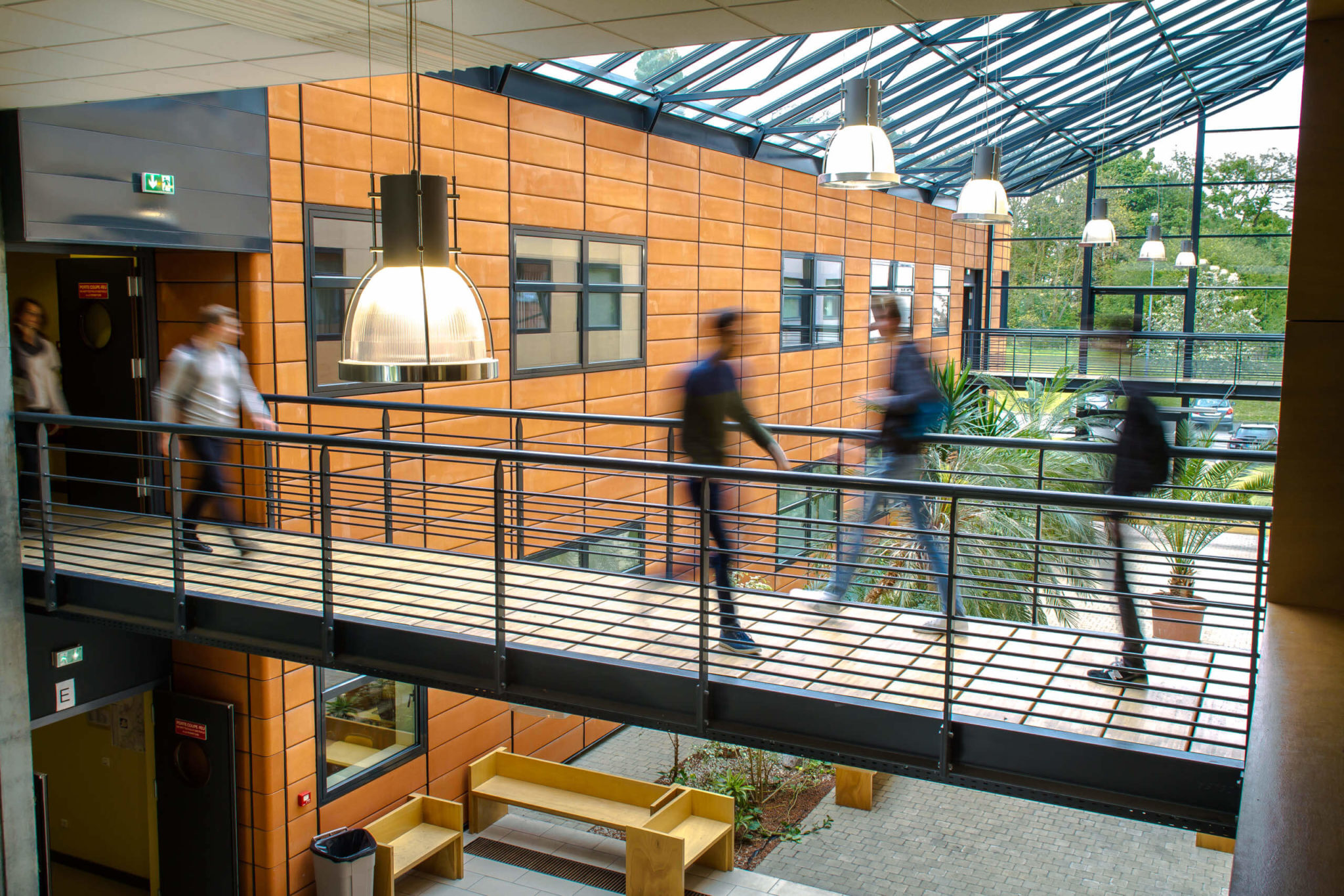
Our network
The IMT Nord Europe Research Network

Institut Mines-Télécom (IMT)
IMT is a public institution for higher education and research for innovation. IMT ensures that the skills of its schools respond to 21st century changes in major digital, industrial, energy and ecological fields by reflecting on their impacts on industry of the future, the city, health and personal autonomy.
- IMT website: https://www.imt.fr
- Research at IMT: https://www.imt.fr/recherche-innovation/recherche/
- IMT Science and Technology News: https://imtech.imt.fr

University of Lille
The Faculty of Science and Technology of the University of Lille is a key partner for IMT Nord Europe. It is even involved in the school’s governance. The Faculty provides nearly 9,000 students with a quality multidisciplinary education through its nine academic departments. Its research activities rely on 25 internationally renowned laboratories equipped with the highest-level scientific facilities and technological platforms. The University of Lille has been assessed by HCERES (France’s High Council for the Evaluation of Research and Higher Education).
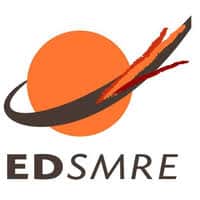
Graduate School for Science of Matter, Radiation and Environment (GS SMRE)
Graduate School for Science of Matter, Radiation and Environment (GS SMRE) is one of the six graduate schools that make up the Collège Doctoral Lille Nord de France. It offers excellent training through research, in a wide range of fields including physics, chemistry, earth and life sciences, and agri-food biotechnoloy. Its mission is to organise and lead the education of PhD students to best prepare them for their future professional integration, in the fields of research and higher education as well as in the corporate sector.
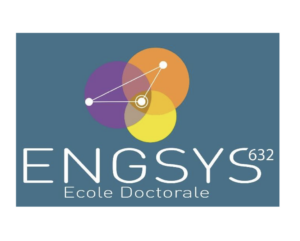
Engineering and Systems Science Graduate School (EG) ENGSYS-632
Established in September 2021, the ENGSYS-632 Graduate School (EG) in the field of engineering and systems sciences, is one of the seven Graduate Schools of the College of Graduate Studies of the University of Lille. Some 300 PhD students are pursuing their PhD in one of the following three areas: Electrical Engineering (GE), Micro and Nanotechnologies, Acoustics and Telecommunications (MNTAT), Mechanics, Civil Engineering, Energy, Materials (MGCEM).
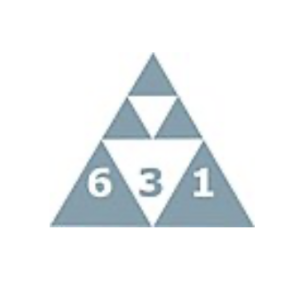
MADIS-631 Graduate School of Mathematics-Digital Sciences and their Interactions
Established in 2021-2022, MADIS-631 Graduate School of Mathematics-Digital Sciences and their Interactions is one of the seven doctoral schools of the doctoral college of the University of Lille. Over 250 PhD students are pursuing their PhD in one of the following three areas: Automation, Computer Engineering and Signal and Image Processing, Computer Science, Pure and Applied Mathematics.

MEDEE Centre
Since 2010, the MEDEE Centre has acted as a bridge between the worlds of industry and research.
Based in Lille, the cluster federates and coordinates a community of stakeholders specialised in electrical engineering: large groups, innovative SMEs, startups, laboratories and higher education institutions.
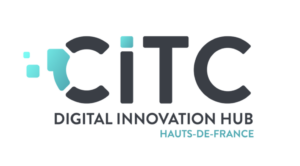
CITC – IoT Cluster
CITC Hauts-de-France provides training in emerging technologies (embedded systems, RFID, NFC, design of connected objects, antenna design, security).
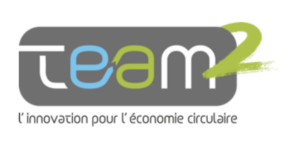
TEAM2 Centre
Created in 2010 by Christian Traisnel and certified the same year, TEAM2 (Environmental Technologies Applied to Matter and Materials) is the national competitiveness cluster dedicated to the circular economy and recycling. Drawing on its expertise and its network of industrial, scientific and institutional partners, TEAM2 stimulates innovation for resources of the future from recycling.
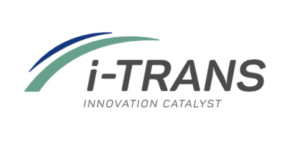
I-Trans Centre
Based in the Hauts-de-France region, I-Trans is a competitiveness cluster for low-carbon connected mobility.
The cluster’s mission is to boost the competitiveness of companies as drivers of growth and employment through collaborative innovation. The cluster brings together large groups, mid-tier firms, SMEs and laboratories from a wide range of fields in ambitious R&D&I projects in the fields of rail, automotive, mobility and freight.
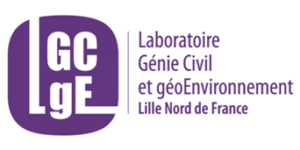
LGCgE
The LGCgE brings together teams of researchers from the Community of Universities and Institutions (COMUE) Lille Nord de France. The laboratory pursues multidisciplinary research to meet the challenges of sustainable construction, development and ecology. It therefore responds to issues raised by construction, sustainable development, the safety of works and infrastructure, sustainable energy management, protection of natural resources (especially water resources), management of contaminated sites and biodiversity.
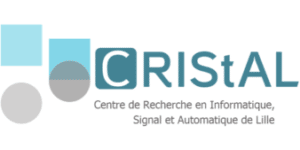
CRIStAL
CRIStAL is a member of the IRCICA Interdisciplinary Research Institute – USR CNRS 3380. Its activities are linked to major scientific and societal challenges such as big data, human-machine interactions, robotics, intelligent embedded systems and bioinformatics. Its applications are designed for various sectors of the trade industry, health technologies and smart grids.

IEMN
IEMN, the major European research centre on micro and nanotechnologies offers a single structure uniting key regional research in a broad scientific field ranging from physics of materials and nanostructures to telecommunications systems, acoustic and microwave instrumentation. The centre has a special focus on micro and nanotechnologies (nanostructures and nano-electronics, microelectronics, microwaves and microsystems).
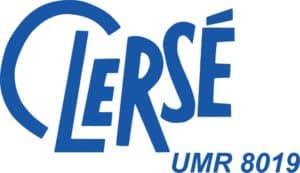
The Lille Centre for Sociological and Economic Studies and Research (Clersé)
The Lille Centre for Sociological and Economic Studies and Research (Clersé) is a joint research unit of the University of Lille and of CNRS (UMR 8019). It has therefore always been a multidisciplinary laboratory. In keeping with this identity, Clersé has established strong links with the Centre for Studies and Research on Qualifications (Céreq).
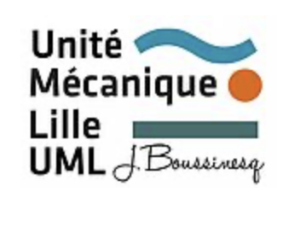
UML
The creation of the Lille – Joseph Boussinesq Mechanics Unit (UML), on 1st January 2018 was part of efforts to restructure mechanics research in Lille. It was intended to continue the tradition of the Lille Laboratory of Mechanics (LML), established over 30 years ago, with a rich history including growth phases and significant developments.

The PC2A Laboratory
PC2A laboratory’s research activities are conducted by some sixty people from three research teams: Physicochemistry of Combustion, Physicochemistry of the Atmosphere and Nuclear Safety. They focus on laser diagnostics and chemical mechanisms in flames and clean processes, combustion in engines, homogeneous and heterogeneous atmospheric reactivity, theoretical chemistry and air quality. PC2A is part of the Institute for Multidisciplinary Research in Environmental Sciences (IRePSE).

Central Laboratory for Air Quality Monitoring (LCSQA)
The Central Laboratory for Air Quality Monitoring (Laboratoire Central de Surveillance de la Qualité de l’Air – LCSQA) appointed by the French Ministry of the Environment, is the technical coordinator for France’s air quality monitoring system. It was created as the result of close collaboration between three partners: INERIS, the Laboratoire National de Métrologie et d’Essais (LNE) and IMT Nord Europe.

CaPPA
The CaPPA laboratory of excellence – Physics and Chemistry of the Atmospheric Environment – draws on the multidisciplinary expertise of 7 research teams (LOA, PC2A, PhLAM, SAGE, LPCA, ICARE, LASIR) to promote metrological innovation in the field of the atmospheric environment. On the one hand, it focuses on the “aerosol” system and its precursors to gain a better understanding of their role in climate forcing and the hydrological cycle. On the other hand, it studies the development of air quality at global, regional and local scales, with specific studies on radionuclides.

Railenium
Railenium, the Institute of Research and Technology (IRT) of the railway sector, brings together the skills and resources of nine research centres, eighteen companies in the railway sector and two network managers. It aims to improve the performance of rail systems and trains of the future and strengthen the competitiveness of the rail sector and its industry internationally through innovation.

The Research Federation for Land Transport & Mobility
The Research Federation for Land Transport & Mobility (Fédération de Recherche Transports Terrestres & Mobilité -FR3733) aims to develop multidisciplinary synergies, pool resources and staff, as well as support access to the scientific resources needed to develop new and more generic knowledge, in order to be prepared to submit unified responses to regional, national and European calls. It is supported by the CNRS, the Polytechnic University of Hauts-de-France, the University of Lille and Centrale Lille Institut.

Structure Fédérative de Recherche – Technologies pour la Santé et Médicament
The Structure Fédérative de Recherche – Technologies pour la Santé et Médicament [Healthcare Technologies and Medicines] (SFR – TSM) brings together around twenty research teams, regional hospitals, and industries in the sector to support innovative projects integrating basic research, translational research and clinical research. It covers medicines and biomaterials, e-health and medical logistics and medical devices (bioengineering, computer-assisted movements).

CETIM, Technical Centre for Mechanical Industries
CETIM, Technical Centre for Mechanical Industries, is a Carnot-certified technological institute and a member of the Alliance Industrie du Futur. It is the French centre of mechanical expertise. It also a valuable R&D resource for 6,500 mechanics companies and, with its associated centres and subsidiaries, represents a total of 1,100 people, of whom over two-thirds are engineers and technicians, with a total turnover of €150 million. CETIM has been increasing its activities through a network of scientific and technical partners including, since 2002, IMT Nord Europe and its joint laboratory on pressure vessel technologies (LATEP).
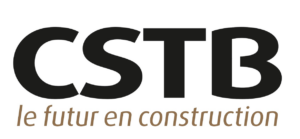
The Scientific and Technical Centre for Building (CSTB)
Scientific and Technical Centre for Building (CSTB) is a French public industrial and commercial institution (EPIC). It is under the authority of the ministries responsible for construction and research. The CSTB’s mission is to guarantee the quality and safety of buildings. The CSTB has over 1,200 test benches and large facilities for conducting tests and trials. As of December 31, 2021, the CSTB employs 986 employees at four centres in France, has operating revenues of €125 million, 10 co-financed projects and boasts over 80 annual publications. IMT Nord Europe signed a framework agreement with CSTB was signed in 2024 to strengthen the institutions’ successful collaboration in Ajaccio.

M.I.N.E.S Carnot Institute
M.I.N.E.S Carnot Institute unites the research capacities of the MINES schools as well as the laboratories of École Polytechnique and ENSTA ParisTech. The aim of its 2,000 research staff is to stimulate value creation among its economic partners and activate the innovation chain through work from its laboratories.

Télécom & Société Numérique Carnot Institute
Télécom & Société Numérique Carnot Institute, having received Carnot accreditation in 2006, mobilizes over 2,000 researchers. It focuses on the technical, economic and social implications of the digital transition, in particular the issues of communicating objects, networks and media of the future, uses and services, personal autonomy and health, the environment and security.


